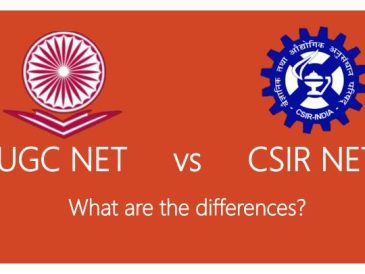For the MBA Programme for Executives to be equal to the full-time MBA programme and the executive MBA programme, Wharton demands exceptionally high academic standards of its students. Since the EMBA program’s start more than 45 years ago, maintaining the same performance for both programmes has been a fundamental tenet.
The GMAT or GRE, or the Executive Assessment (EA) for those with at least eight years of full-time work experience, is a requirement for admission to the Wharton MBA Programme for Executives. Both exams serve as indicators of intellectual capacity and serve as preparation for the analytical disciplines. The Admissions Committee receives a crucial cue from applicants’ desire to commit to the study for these exams. Indicators about what to anticipate on the Wharton entrance exam are provided by the exams to the applicants.
Understanding your GMAT preparation book structure
It would be smart to consider “what to start with” before “how to start with,” as the GMAT differs from other management exams due to its “computer adaptive” nature. Before learning how to prepare for the GMAT, it is important to understand important aspects (paper pattern, exam syllabus, registration, etc.). Additionally, it will give the candidate a sense of the marking system, topical weighting, and style of questions in the exam, as well as how the paper is organized overall and per section. On the other side, it will also provide guidance on what must be learned and what must not.
Make use of GMAT diagnostic
Giving a mock GMAT examination prior to the real GMAT exam is analogous to taking the GMAT diagnostic test. Because the questions on a GMAT diagnostic test are the most similar to the actual problems on the exam, this paper will make a clear distinction between an individual’s improvement.
Additionally, it will aid in broadening the candidate’s knowledge set beyond what they are now capable of. The GMAT Diagnostic Test is a fake study material for GMAT practice test that is followed by a solution analysis that provides the percentile evaluation, the correct answer, various ways to approach a problem, and the current position in relation to other test-takers.
Make use of GMAT coaching
Targeting the “right kind” of questions is key to passing the GMAT because they can make or break your percentile score. In order to be given priority by a variety of B-schools, a student must also be very critical of his or her accuracy. At every point of the GMAT preparation process, it is very possible that a candidate will require excellent mentoring. Determining which method or mode will be the most appropriate and practical for a GMAT aspirant to pick requires examination of all feasible and reliable learning approaches, particularly when it comes to GMAT tutoring alternatives.
Identify the best available resources
It is advised against purchasing the previous GMAT practice books, which are pricey and quite confusing, as the GMAT Test structure was changed last year. Confusion for the candidate can be avoided by staying informed of official updates. To succeed on the GMAT, one must concentrate primarily on the material in the syllabus that follows the most recent GMAC standards. Every test taker should look for books with questions that correspond to the GMAT’s past years’ question papers and cover all degrees of difficulty. Easy, moderate, and challenging, respectively. The GMAT study guides’ caliber ought to match that of the test itself and be tried and true by GMAT specialists.
Get Familiar With Practice
It is not advised to completely rely on printing out the book in terms of GMAT preparation because the test is an online adaptive test. In order to eventually tackle the GMAT head-on, the candidate will benefit from effective time management and strength-building techniques learned online. It would make it possible for the candidate to allocate time for self-study effectively, focusing on deadlines for each slot in the day. As a result, this method will save time by avoiding needless travel, resulting in a much more rational approach to passing the GMAT on test day.
Focus On Improving Study Time
It’s important to become accustomed to the many types of challenges that the GMAT computer adaptive test presents. In a way, the candidate is then assured that they are ready to successfully respond to each of these question kinds. In order to perform well on the GMAT, increasing study time and practicing consistently in the weeks leading up to the test are absolutely necessary. As the exam date draws closer, it makes the most sense to increase study time significantly. Picking an exam date that allows for sufficient preparation time is also a good idea.
Maintain A Dairy
A candidate should prioritize keeping a diary when scheduling preparation time. The candidate can keep track of their areas for improvement by keeping a journal in which challenging questions are noted. These areas will start to get smaller as long as the candidate regularly maintains this, indicating preparation progress. This routine will help the diligent candidate’s morale and serve as a reminder of areas that need improvement.
Wrapping Up
For a full five years, GMAT scores are valid. Prior to submitting an application for a master’s programme, candidates in their final or almost final year of undergraduate study have the advantage of building their portfolio. But more than any other skill, the GMAT is a test that measures a candidate’s strength of will. Application fees for the GMAT are well-known to be high. Starting from the very beginning, any aspirant who chooses to study for the GMAT must be serious. A candidate must work consistently and devotedly because the GMAT is the most popular applicant evaluation test among business schools worldwide.




